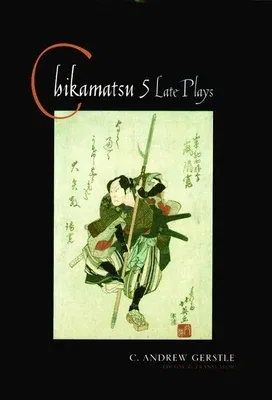C Andrew Gerstle
(Author)Chikamatsu: Five Late Plays (Revised)Paperback - Revised, 4 September 2002

Qty
1
Turbo
Ships in 2 - 3 days
In Stock
Free Delivery
Cash on Delivery
15 Days
Free Returns
Secure Checkout

Part of Series
Translations from the Asian Classics
Part of Series
Translations from the Asian Classics (Paperback)
Print Length
376 pages
Language
English
Publisher
Columbia University Press
Date Published
4 Sep 2002
ISBN-10
0231121679
ISBN-13
9780231121675
Description
Product Details
Authors:
Book Edition:
Revised
Book Format:
Paperback
Country of Origin:
US
Date Published:
4 September 2002
Dimensions:
22.5 x
14.99 x
2.97 cm
ISBN-10:
0231121679
ISBN-13:
9780231121675
Language:
English
Location:
New York
Pages:
376
Publisher:
Weight:
684.92 gm